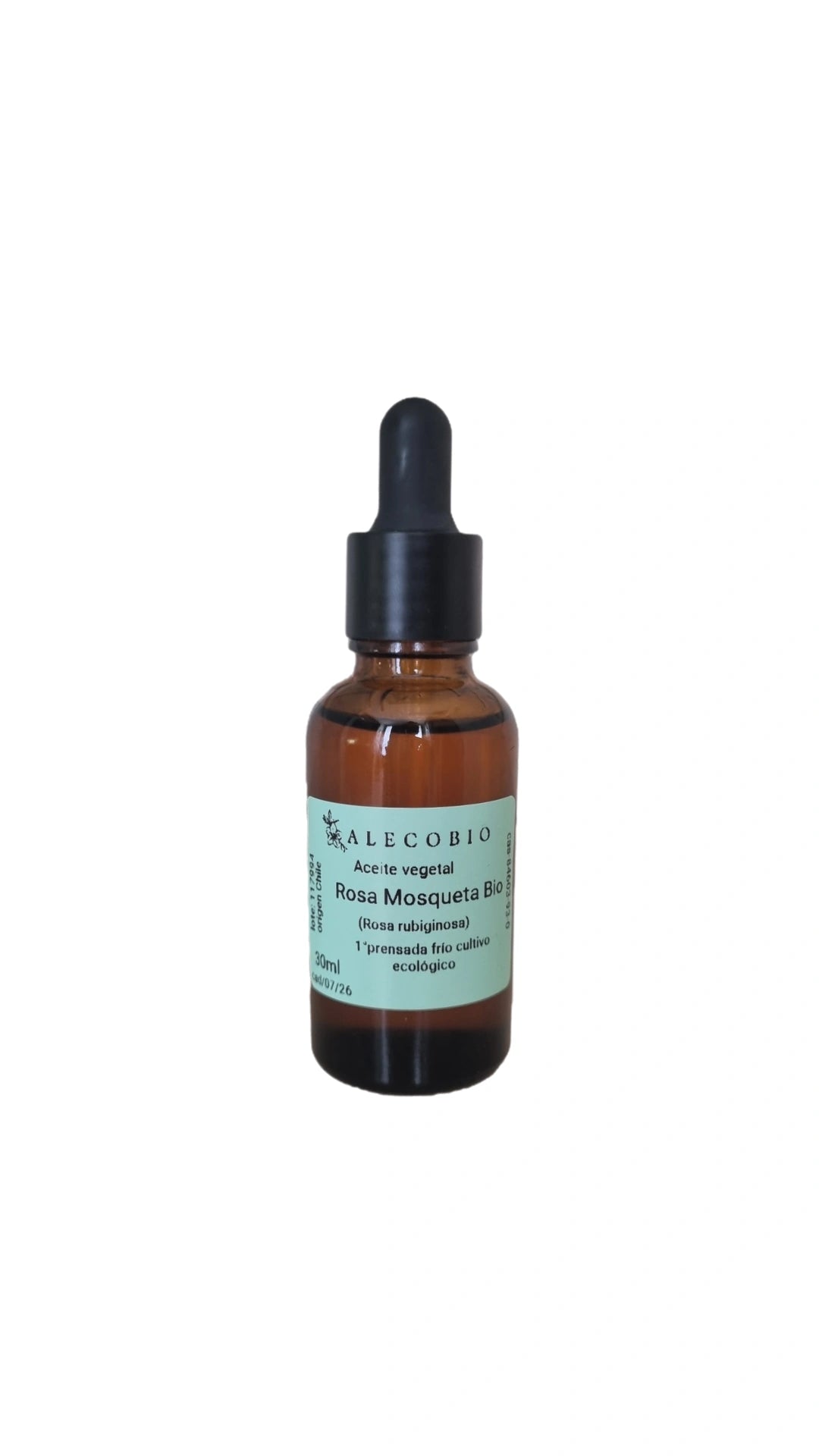Organic Rosehip Vegetable Oil 125ml
Organic Rosehip Vegetable Oil 125ml
Couldn't load pickup availability
Organic Rosehip Vegetable Oil
Product Description Organic Rosehip Vegetable Oil
Aromium Rosehip oil is extracted from the fruit and is first cold-pressed. It has not been refined or heat-treated to increase its volume. It is 100% virgin and cold-pressed, making it one of the best rosehip oils on the market.
Its main properties are:
- Very rich in vitamin C. Effectively combats colds.
- Effective against wrinkles thanks to its powerful moisturizers. It regenerates the skin and leaves it smooth and firm.
- Unfortunately, it is one of the most adulterated vegetable oils,
- When ingested, it is a diuretic and laxative.
- Redistributes pigmentation, fading skin blemishes
- It significantly slows down water loss from the skin.
- Very effective in the last months of pregnancy to reduce stretch marks.
- Curiously, it acts as an antidepressant.
Benefits of Rosehip Oil
-
Anti-aging properties
Rosehip oil has significant anti-aging benefits for your face. Lightweight and non-greasy, its anti-aging benefits come from its high antioxidant content and the oil's ability to penetrate the deeper layers of the skin, where it can improve hydration levels and reduce visible signs of aging.
Collagen production naturally declines as we age, but thanks to rosehip's high vitamin C content, this is an oil that can help stimulate collagen production in the skin.
For those looking to avoid chemicals and Botox, rosehip oil may be perfect due to its skin-rejuvenating properties of vitamin C, vitamin A, and lycopene. This makes it a safer solution for repairing the skin's surface and restoring its elasticity.
-
Protects against age spots
The sun's UVA rays damage the skin, causing age spots and hyperpigmentation on the face. The antioxidants found in rosehip oil, especially the combination of vitamin C and vitamin E, help fight the free radicals that cause these spots. These antioxidants can reduce the overproduction of pigment in the skin, which is exactly what leads to uneven skin tone and age spots.
Rosehip oil is also deeply moisturizing and helps eliminate redness and irritation. These properties also make rosehip oil a potential treatment for rosacea.
-
Improves stretch marks and reduces acne scars
The essential fatty acids found in rosehip oil help eliminate scars and reduce the appearance of stretch marks by promoting skin regeneration. When applied topically, essential fatty acids act as emollients, softening the skin while increasing hydration.
Rosehip oil also helps with eczema thanks to its emollient properties, which means it can provide a protective barrier to the skin while softening flakes. It also helps reduce the dryness and itchiness of the scalp, which are often caused by the chemicals in most store-bought shampoos.
- Stimulates the immune system
Rosehip is one of the best plant sources of vitamin C, which helps treat infections and strengthen the immune system.
In addition to being an antioxidant, vitamin C is responsible for the production of collagen in the body, which is an important element in the structure of bones and muscles. Vitamin C also aids in the proper absorption of iron, which produces red blood cells.
- Reduces inflammation and helps arthritis
People suffering from arthritis can benefit from using rosehip both internally and externally. It is a rich source of vitamin C and appears to reduce the inflammation associated with arthritis by inhibiting the production of inflammatory enzymes and proteins. There is no recent research on this approach, but traditionally, an infusion of rose petals was often added to bathwater for people suffering from arthritis or rheumatism to relieve symptoms. Therefore, adding a little rosehip oil to bathwater or applying it to areas of inflammation may help.
Tips on how to use rosehip oil
Rosehip oil is delicate and can easily become rancid, so it's important to handle it with care. Vitamin E is often added to extend its shelf life. Keeping it refrigerated or stored in a cool, dark place can help prevent rancidity.
Although more expensive, cold-pressed rosehip oil is better because it has not been altered by heat and therefore retains more nutrients.
Because rosehip oil is classified as a dry oil, it absorbs quickly into the skin. You can apply the oil directly to your face with gentle massage movements or use it in numerous skincare recipes.
Although it can prevent and reduce acne scarring, it should not be applied directly to active acne.
If you have acne-prone skin, be sure to test an area first to ensure the product won't clog your pores, causing unwanted breakouts.
Rosehip oil can be used on the face and neck as it absorbs quickly without leaving a greasy residue. Just remember that you only need 2 or 3 drops.
Technical specifications of organic rosehip vegetable oil
- Botanical name: Rosa rubiginosa
- Family: Rosacea
- Part used: fruits
- Cultivation: Organic
- Origin: Chile
Cellular regenerator, firming, rejuvenating, anti-wrinkle, anti-stretch marks, healing
Share


